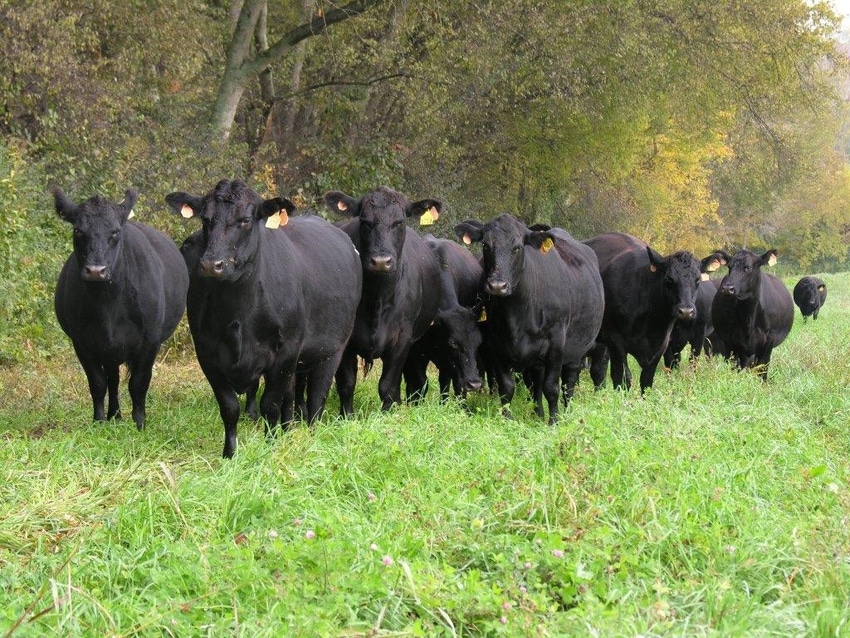Is gut biome of cattle a heritable trait?
Study seeks to estimate heritability of rumen microbiome and identify host genomic markers that ensure heritability.
August 6, 2020

A team of animal scientists in the University of Tennessee Institute of Agriculture (UTIA) is taking an in-depth look at how cattle genetics may influence the rumen microbiome.
Phillip Myer, an assistant professor and microbiologist in the UTIA department of animal science, is leading a new study to determine how the rumen and the microbes that inhabit it affect the conversion of low-quality feedstuffs into usable energy for ruminants, UTIA said in an announcement.
Funded by the U.S. Department of Agriculture National Institute of Food & Agriculture, the $500,000 study seeks to identify whether the genetics of a particular cow influence the rumen microbiome and whether that influence can be passed on to future generations.
“The overarching hypothesis of this project is that host beef cattle genetics are associated with the variation of microbes in the rumen, producing an individualized rumen microbiota among animals,” Myer said.
If certain microbes are significant for feed efficiency, disease resistance and other desirable production traits in cattle, then Myer said he believes that ruminal microbes represent the greatest opportunity to rapidly improve beef cattle nutrition and influence growth to help producers meet future global protein demands.
Specifically, the three-year project seeks to determine the microbes and microbial interactions in the rumen of Angus cattle as well as the microbes’ relation to feed efficiency, UTIA said. The researchers — including Jonathan Beever, director of the UTIA Genomics Center for Advancement of Agriculture; Brynn Voy, professor in the university's department of animal science, and Larry Kuehn and James Wells with USDA's U.S. Meat Animal Research Center — also seek to estimate the heritability of the rumen microbes and microbial features and to identify host genomic markers that ensure heritability.
The goal is microbiome manipulation to enhance agricultural production.
“This project will ultimately provide a means to increase food availability while lowering environmental impacts, develop more sustainable cow/calf production systems and enhance Angus breeding programs," Myer said.
The project will "dramatically advance" the field of beef production agriculture to sustainably meet the protein requirements of an ever-increasing global population, UTIA said.
You May Also Like



